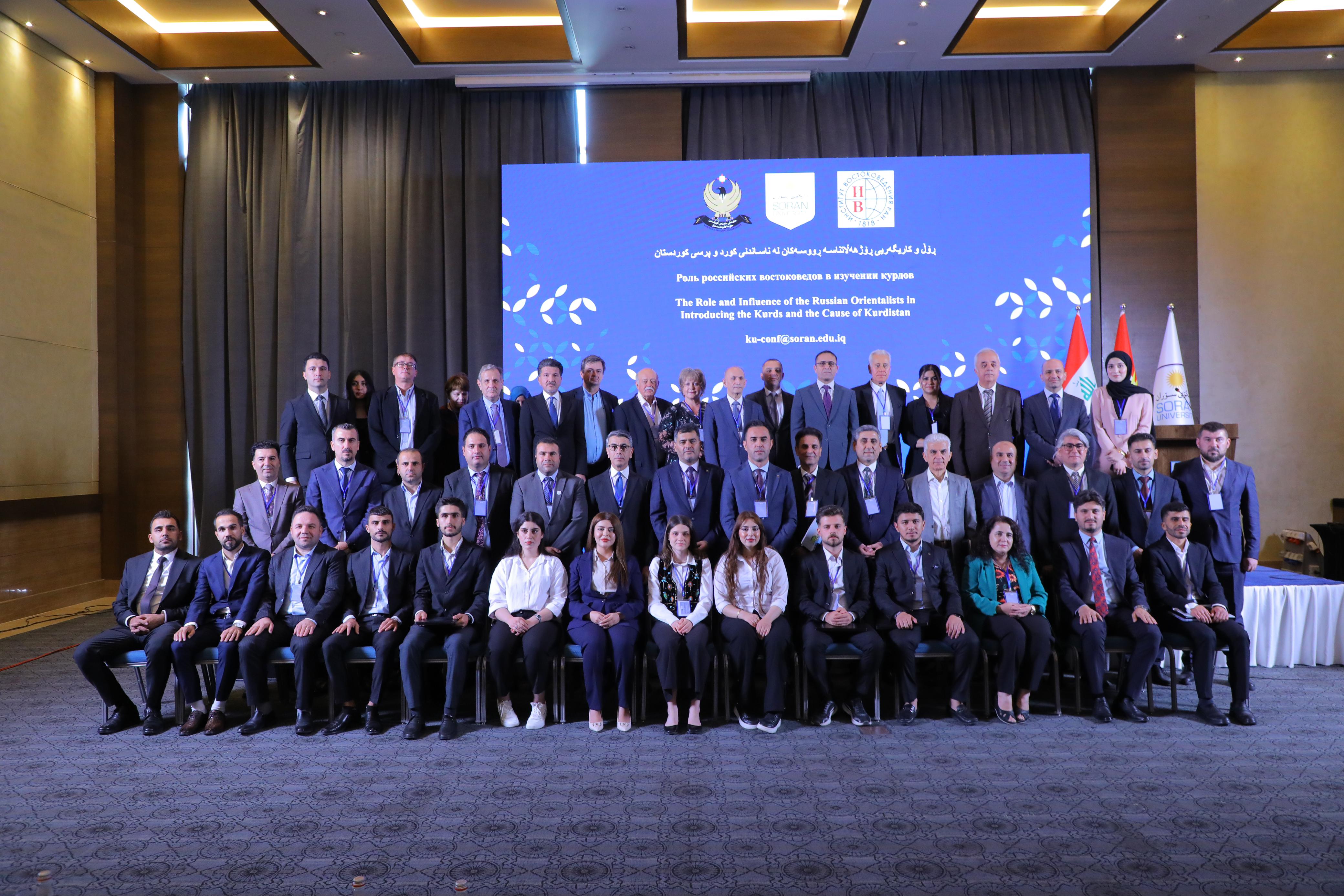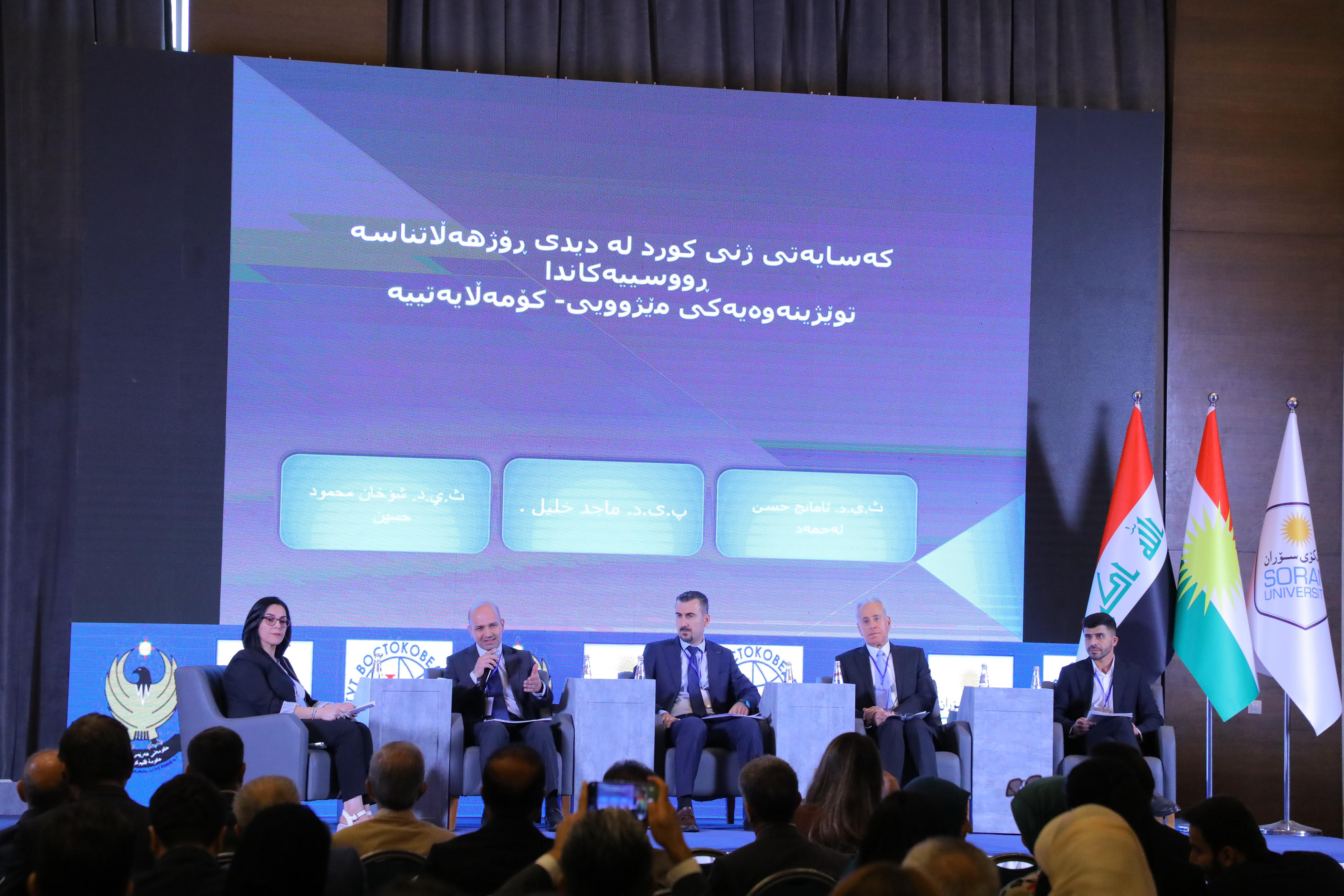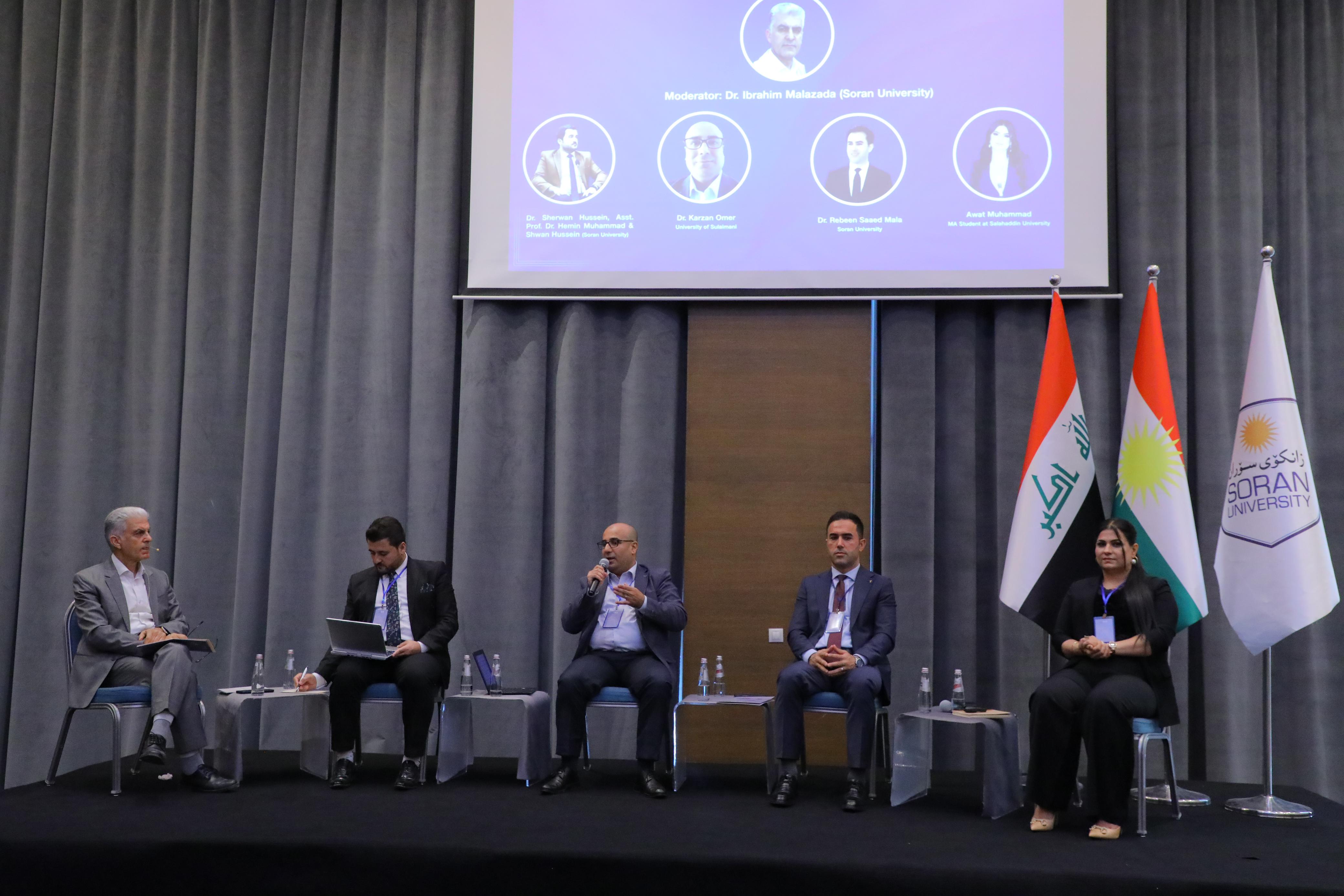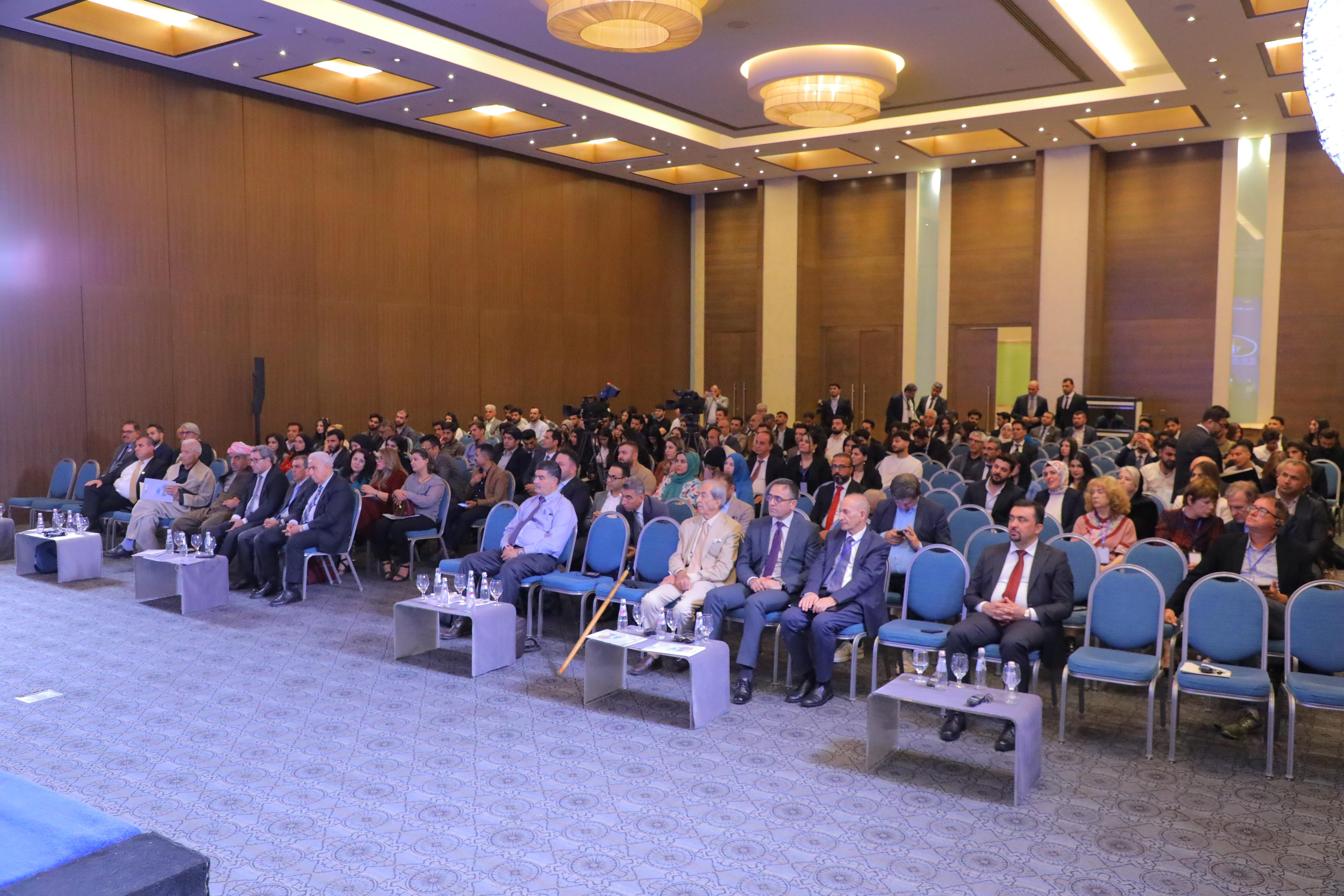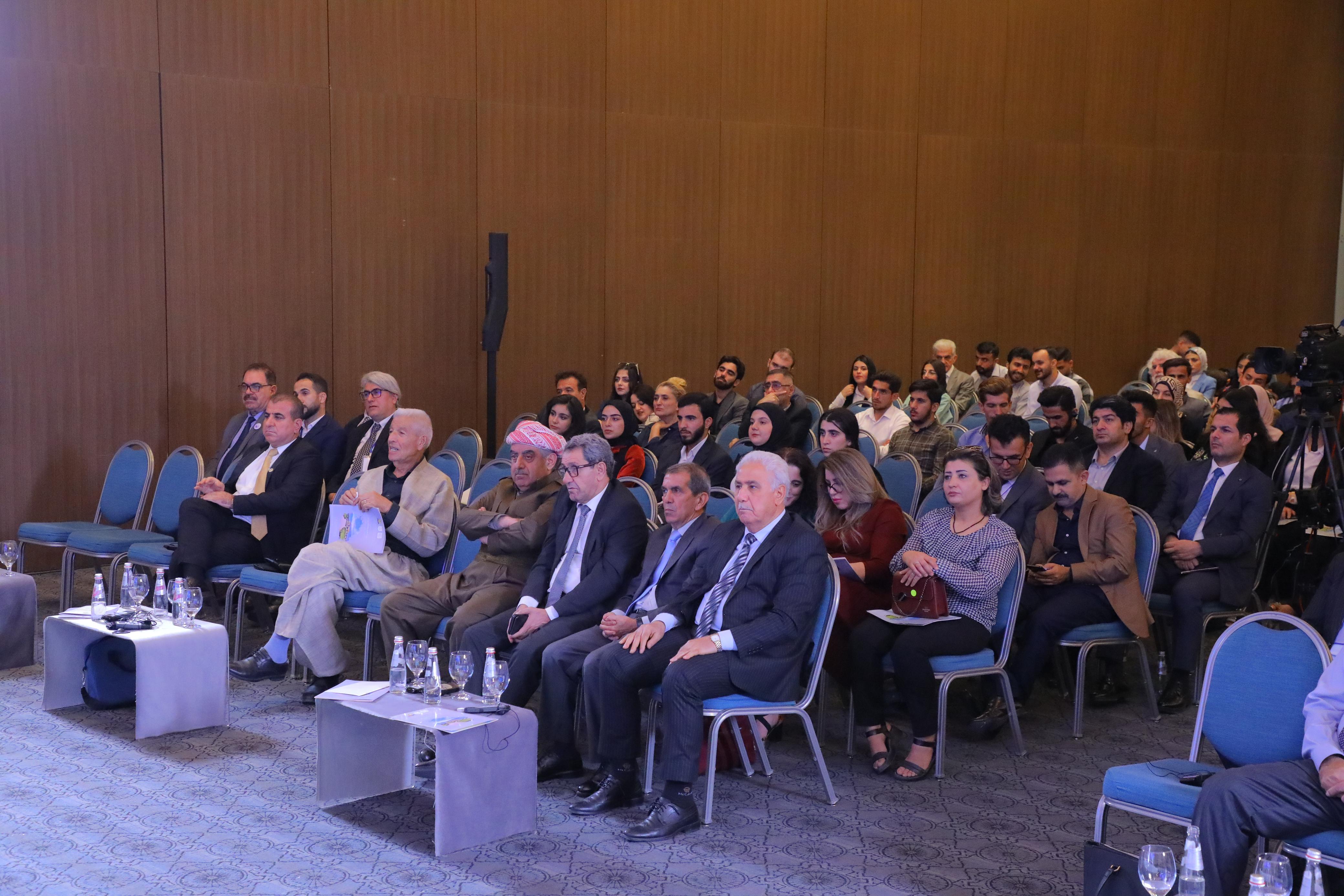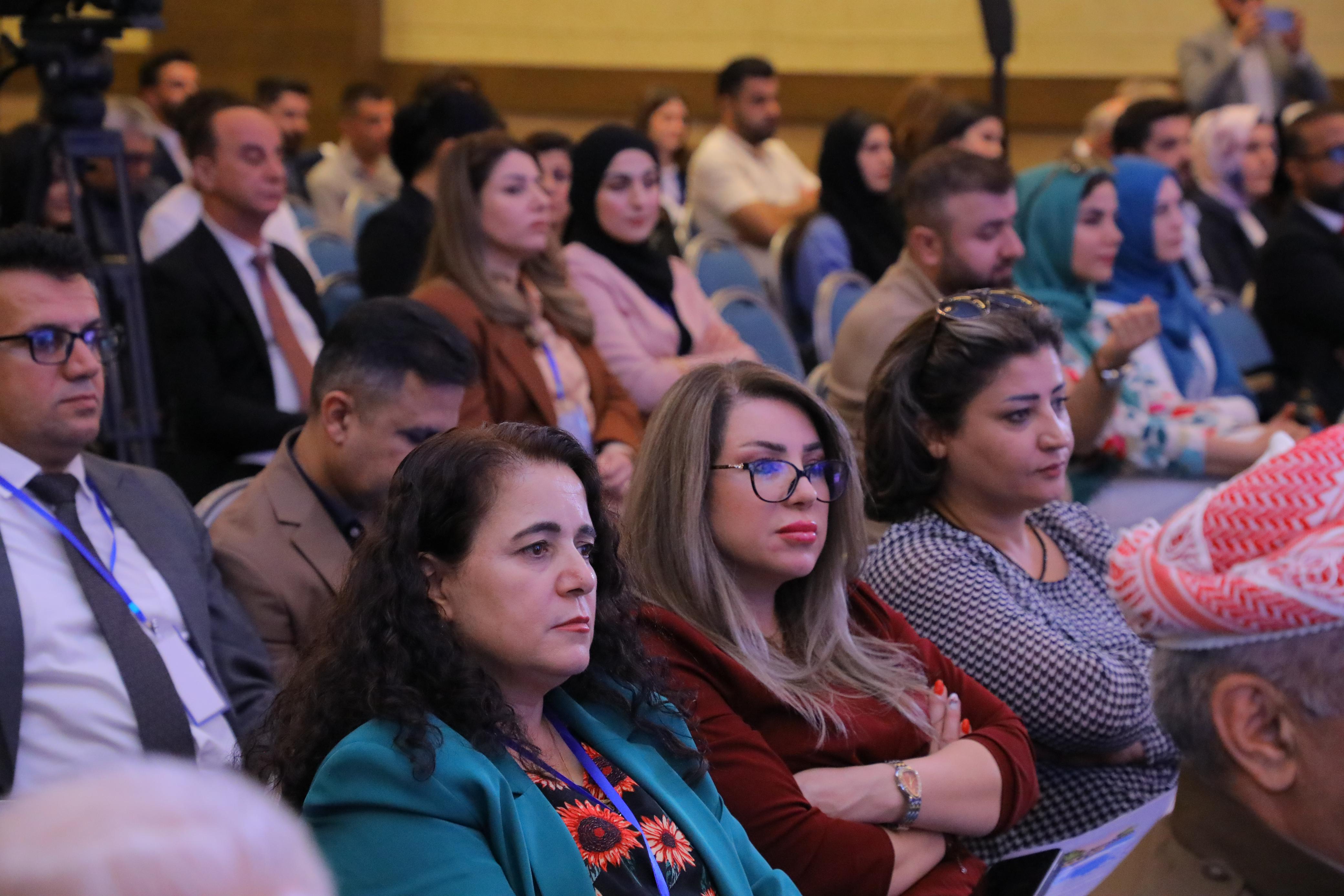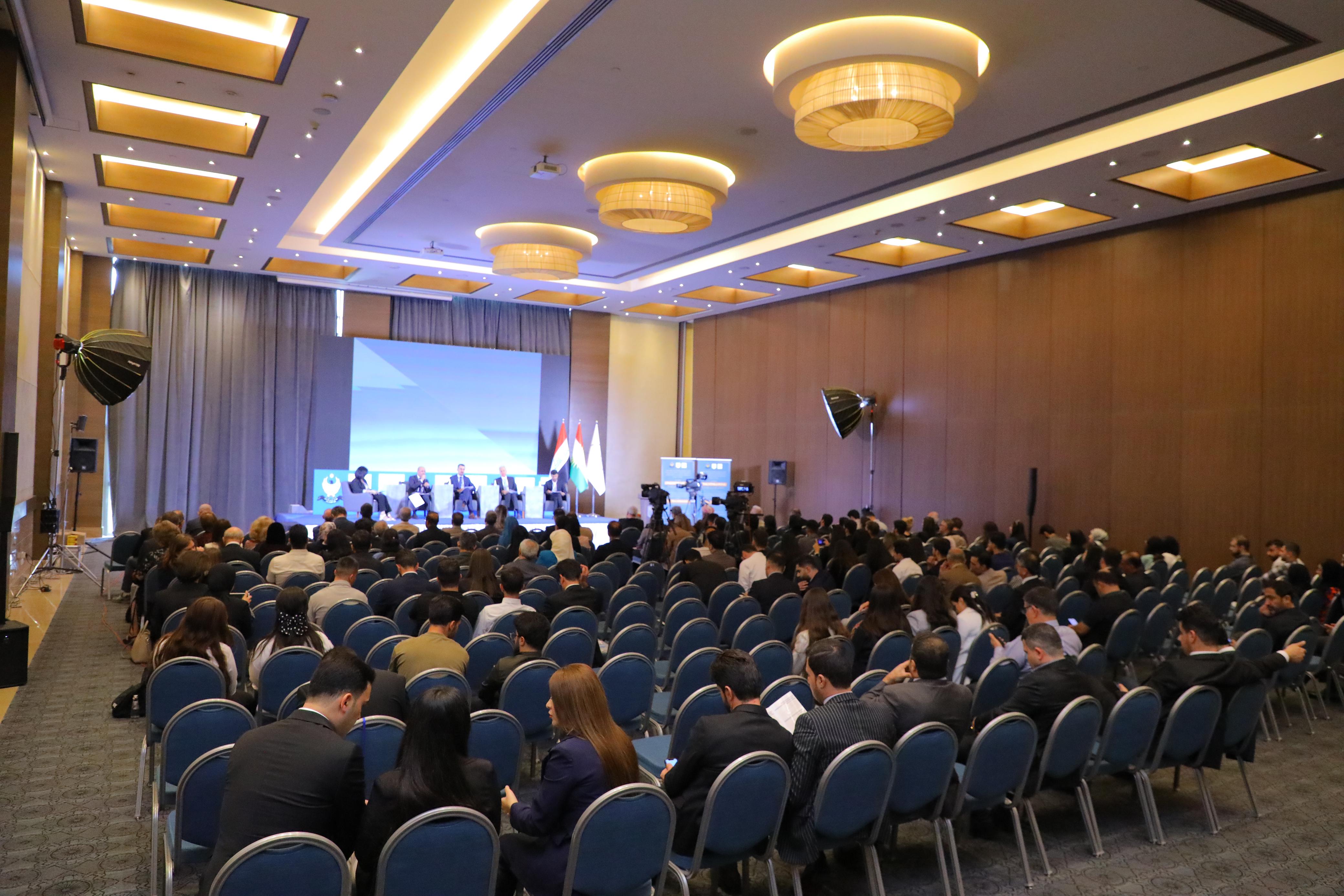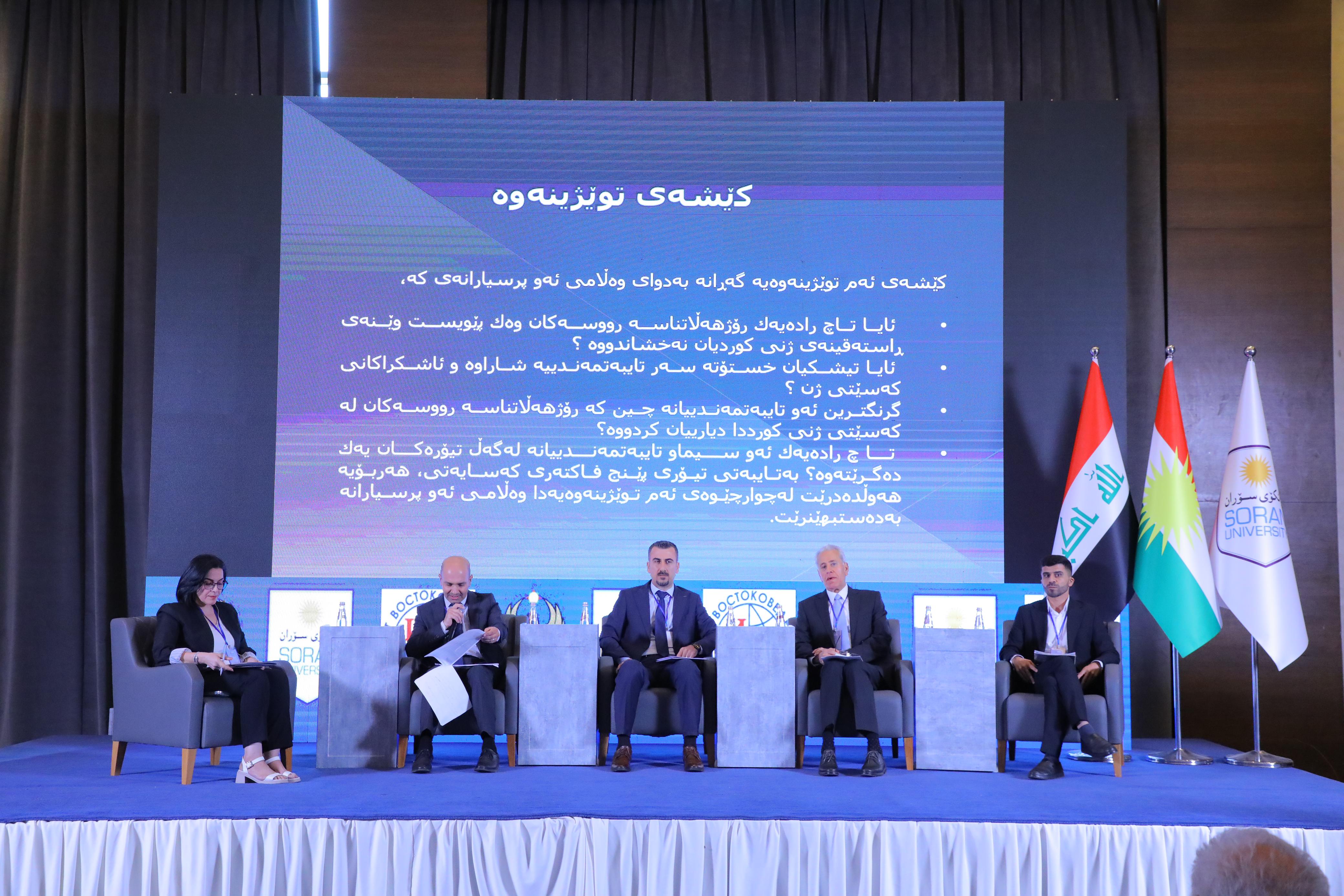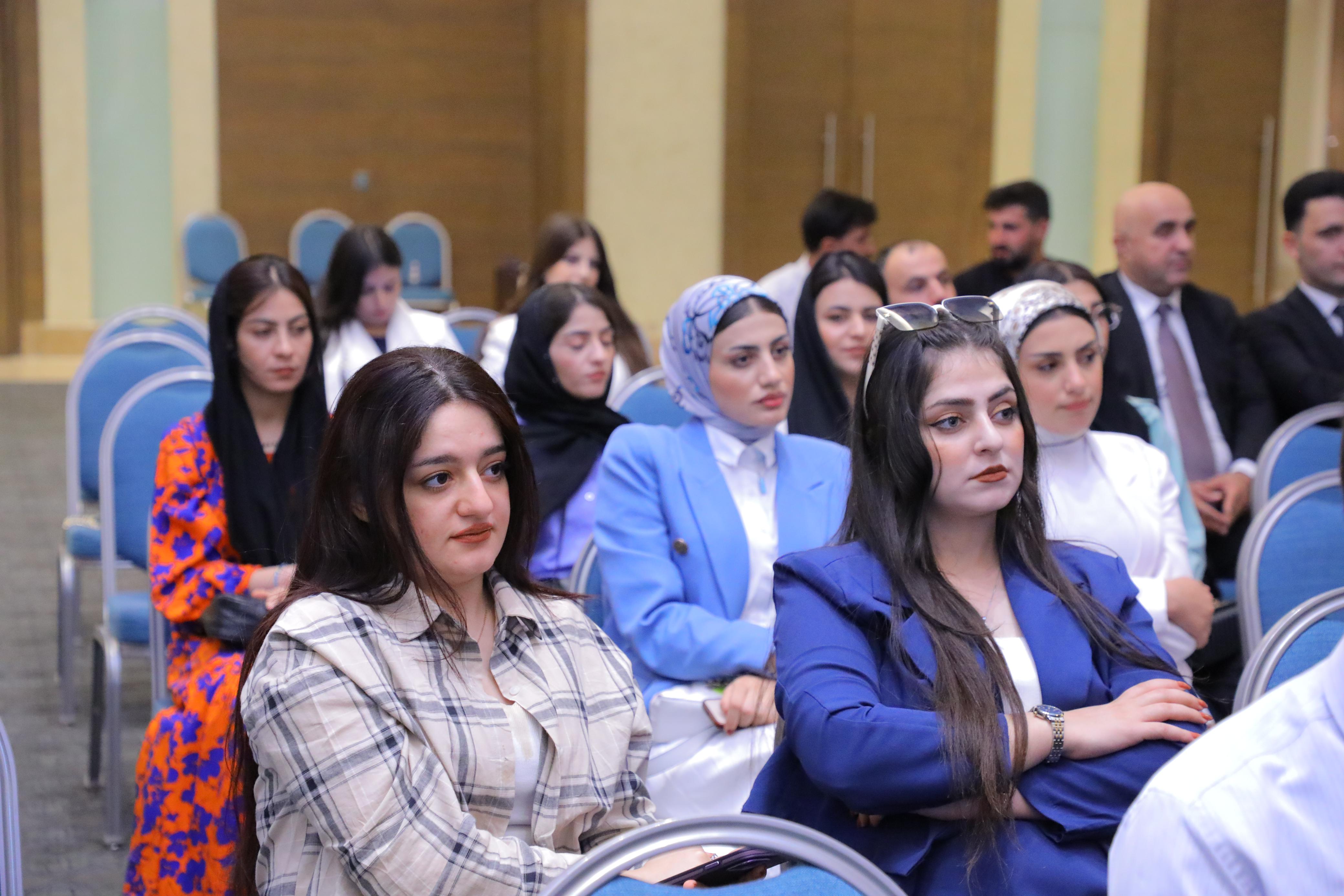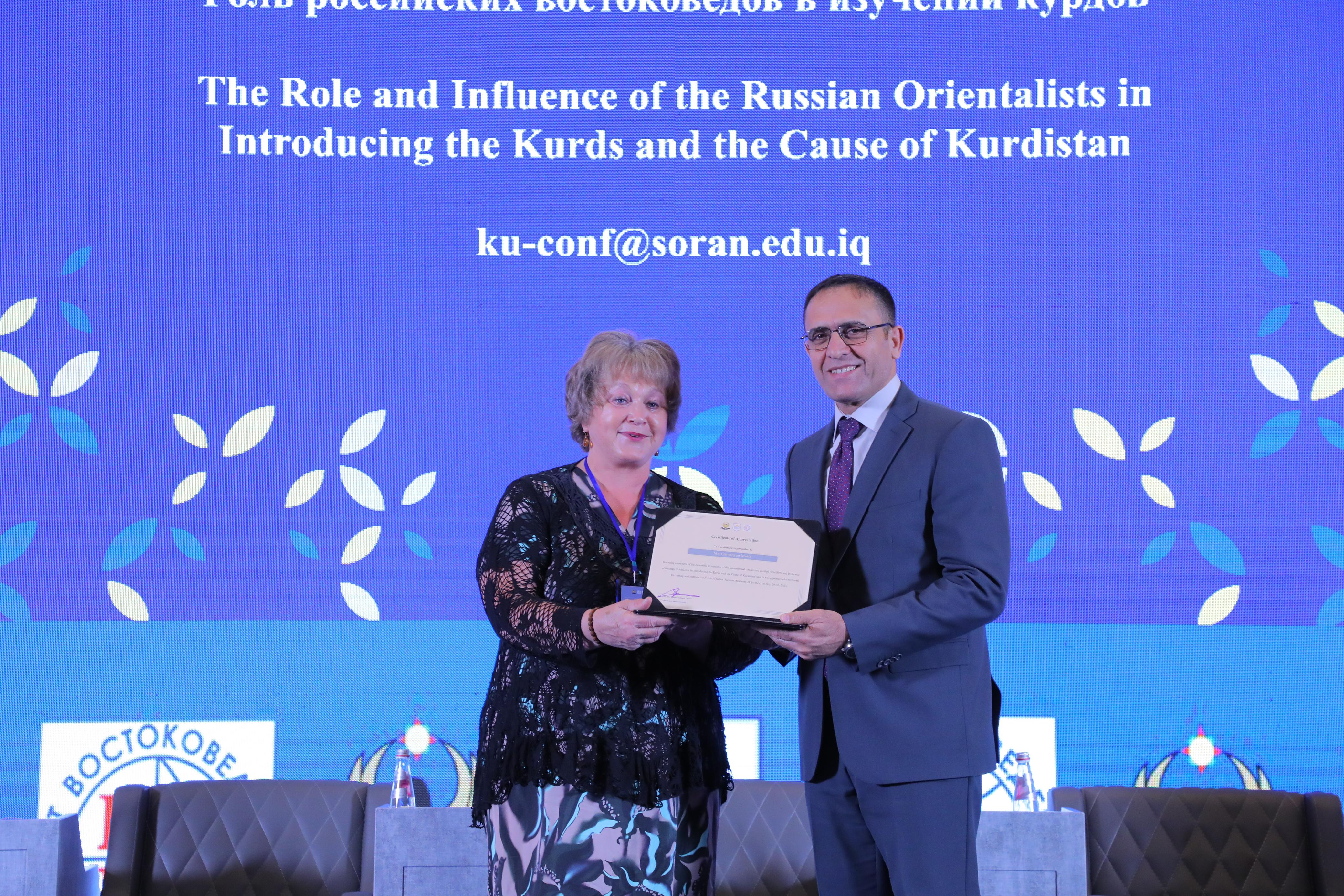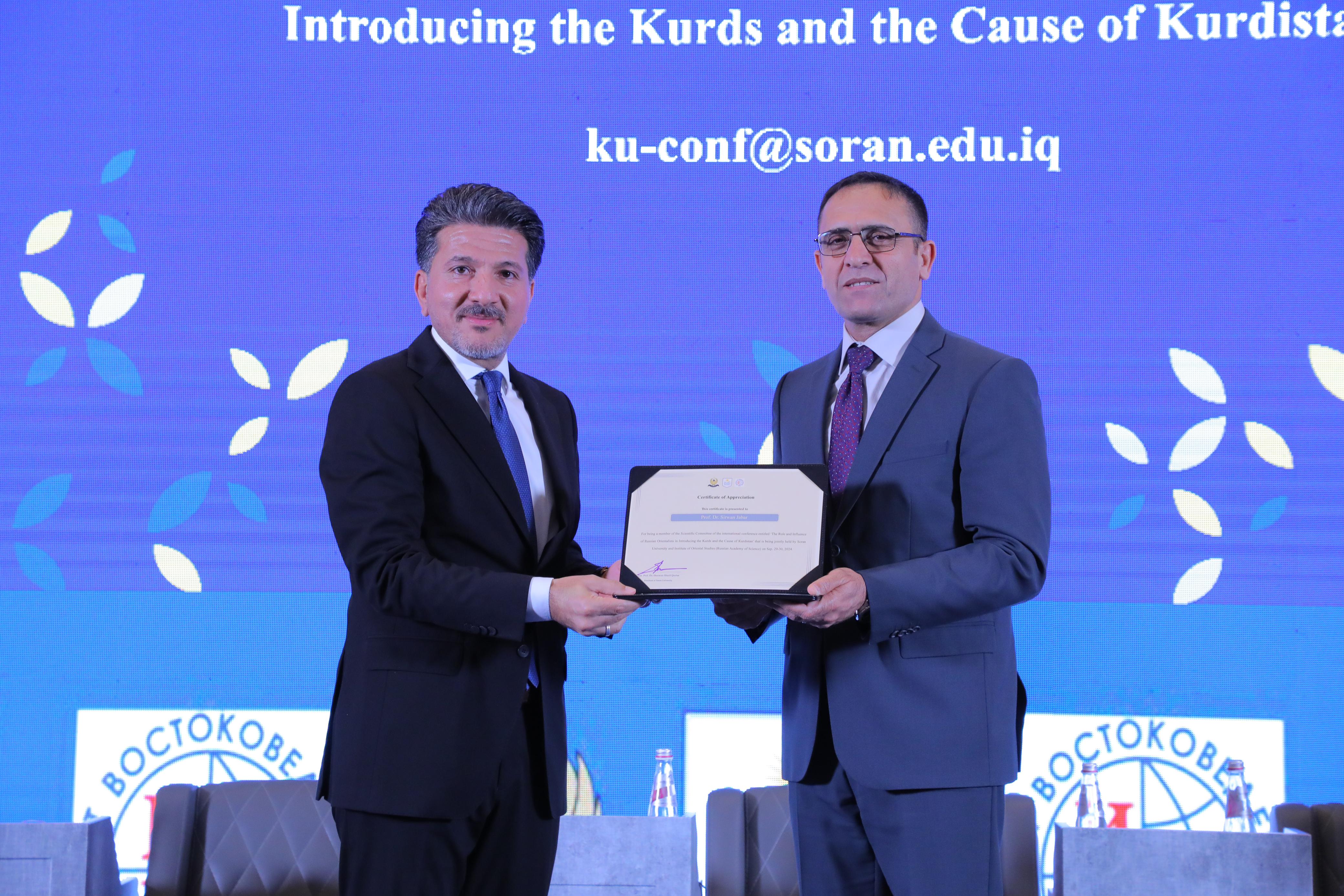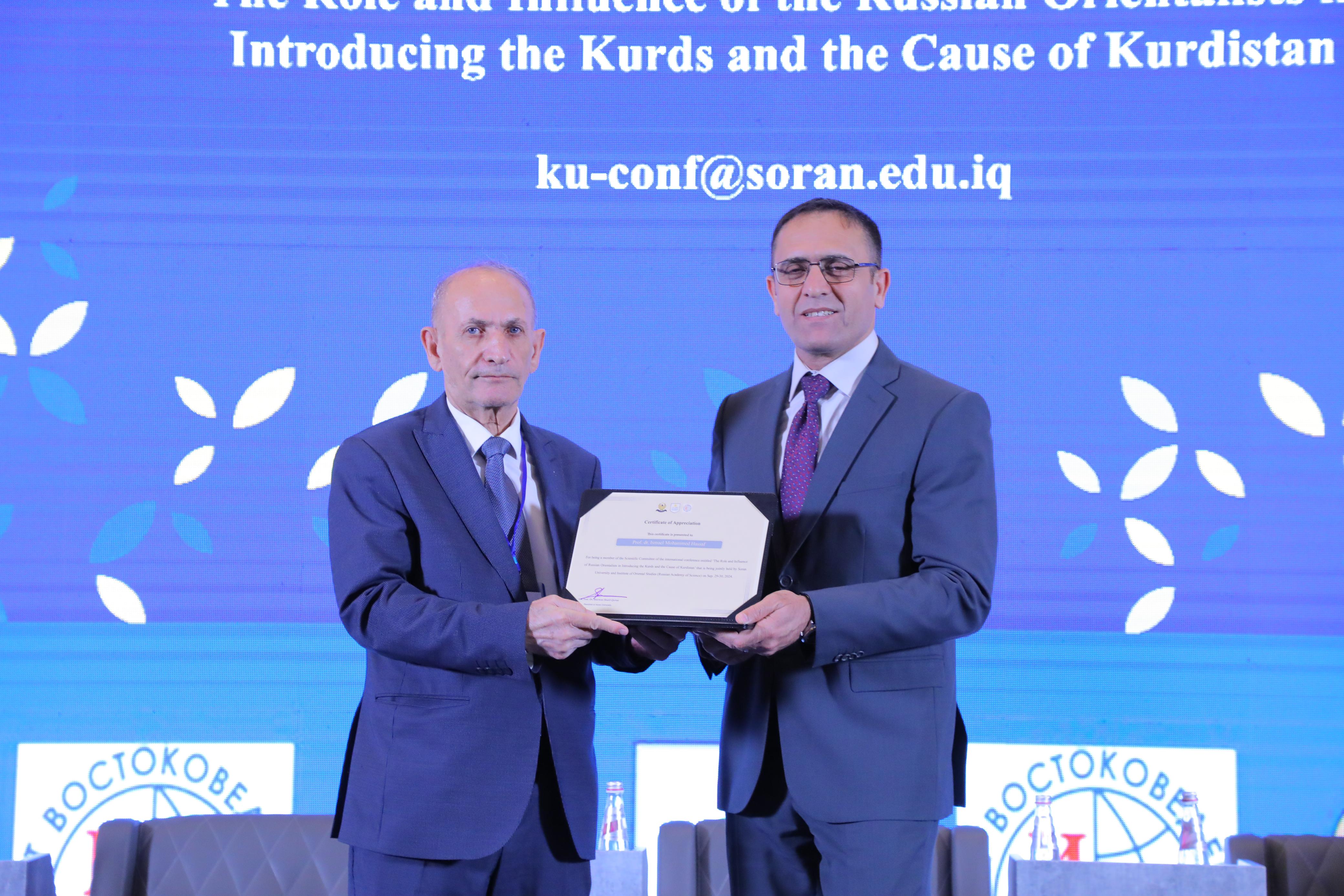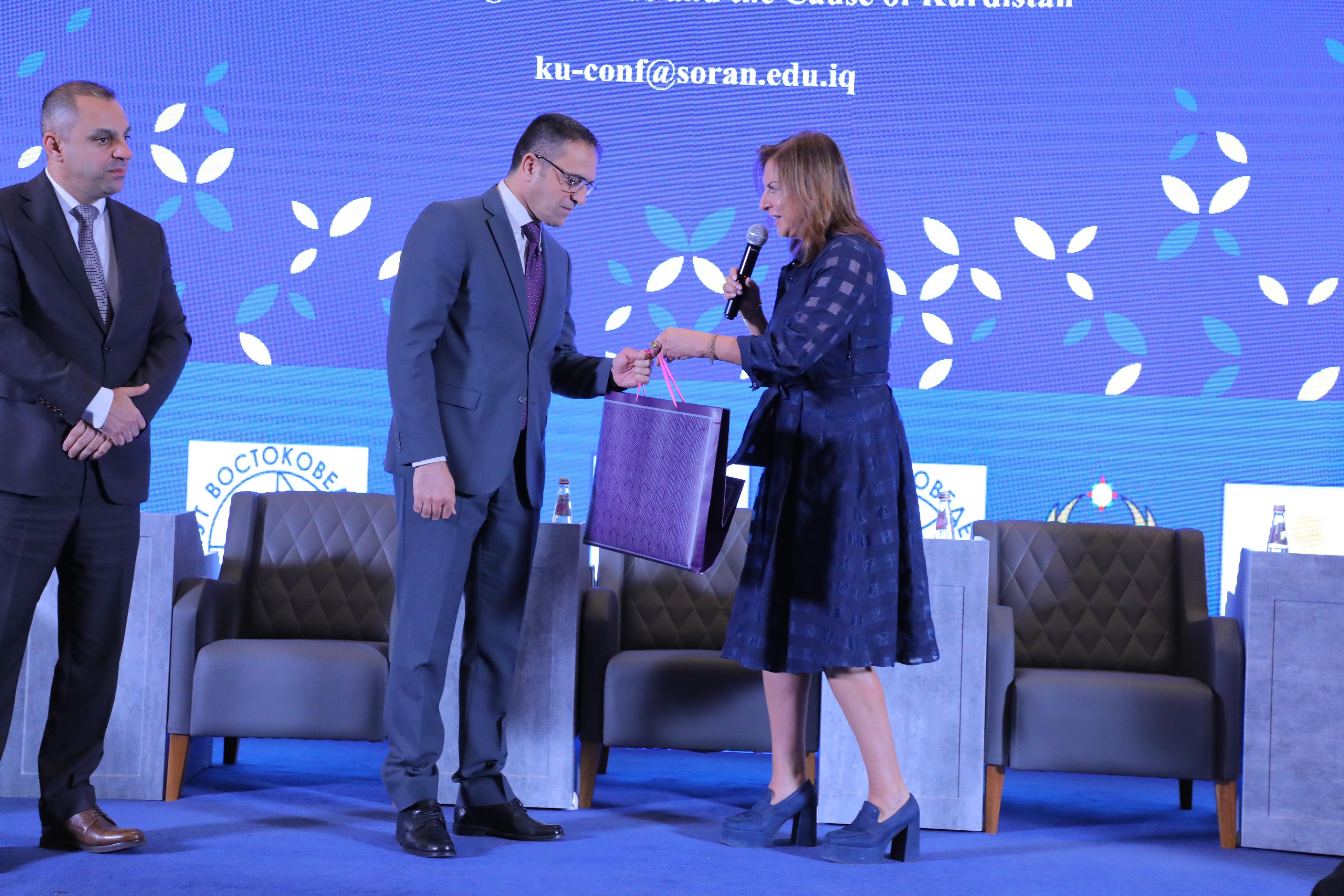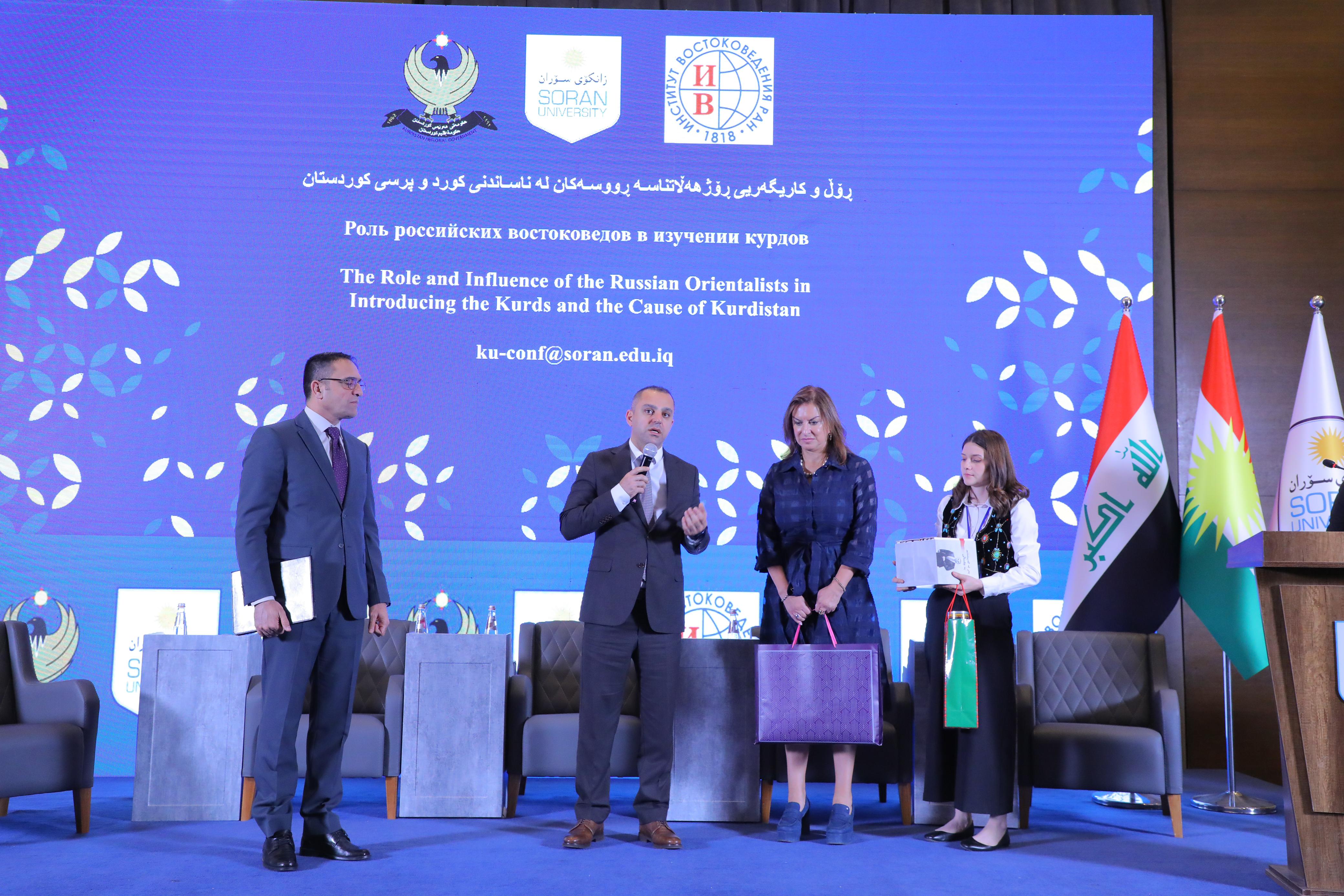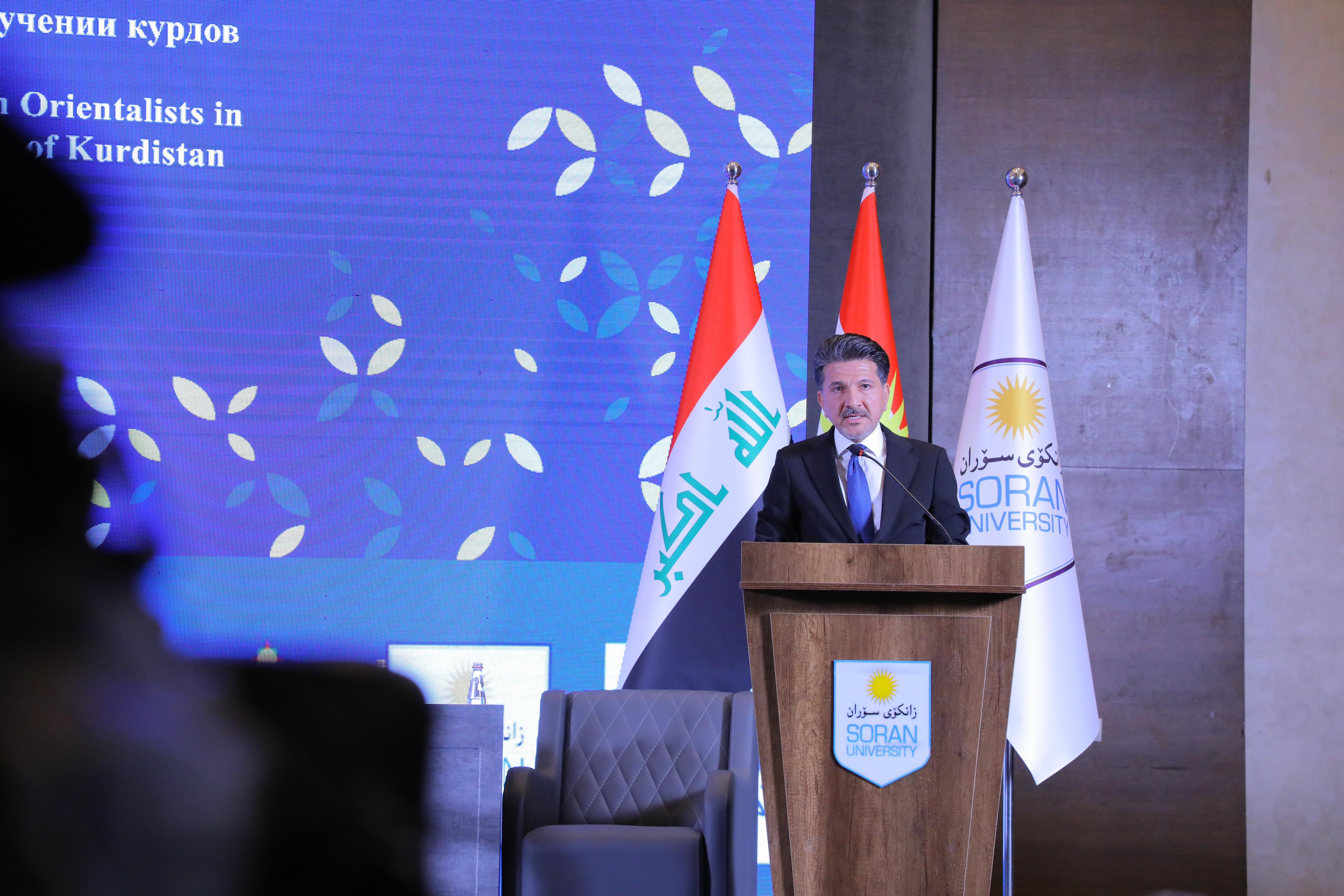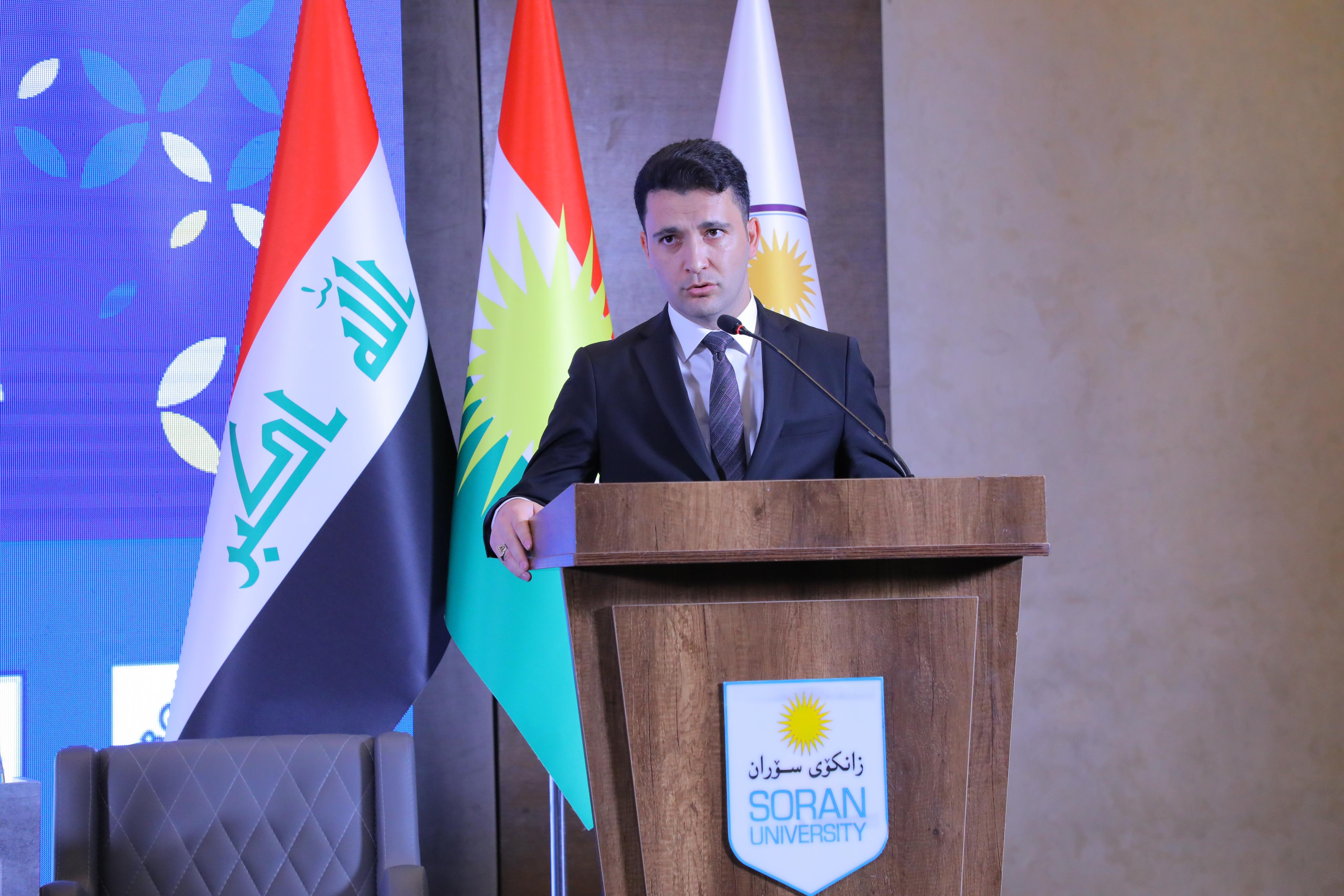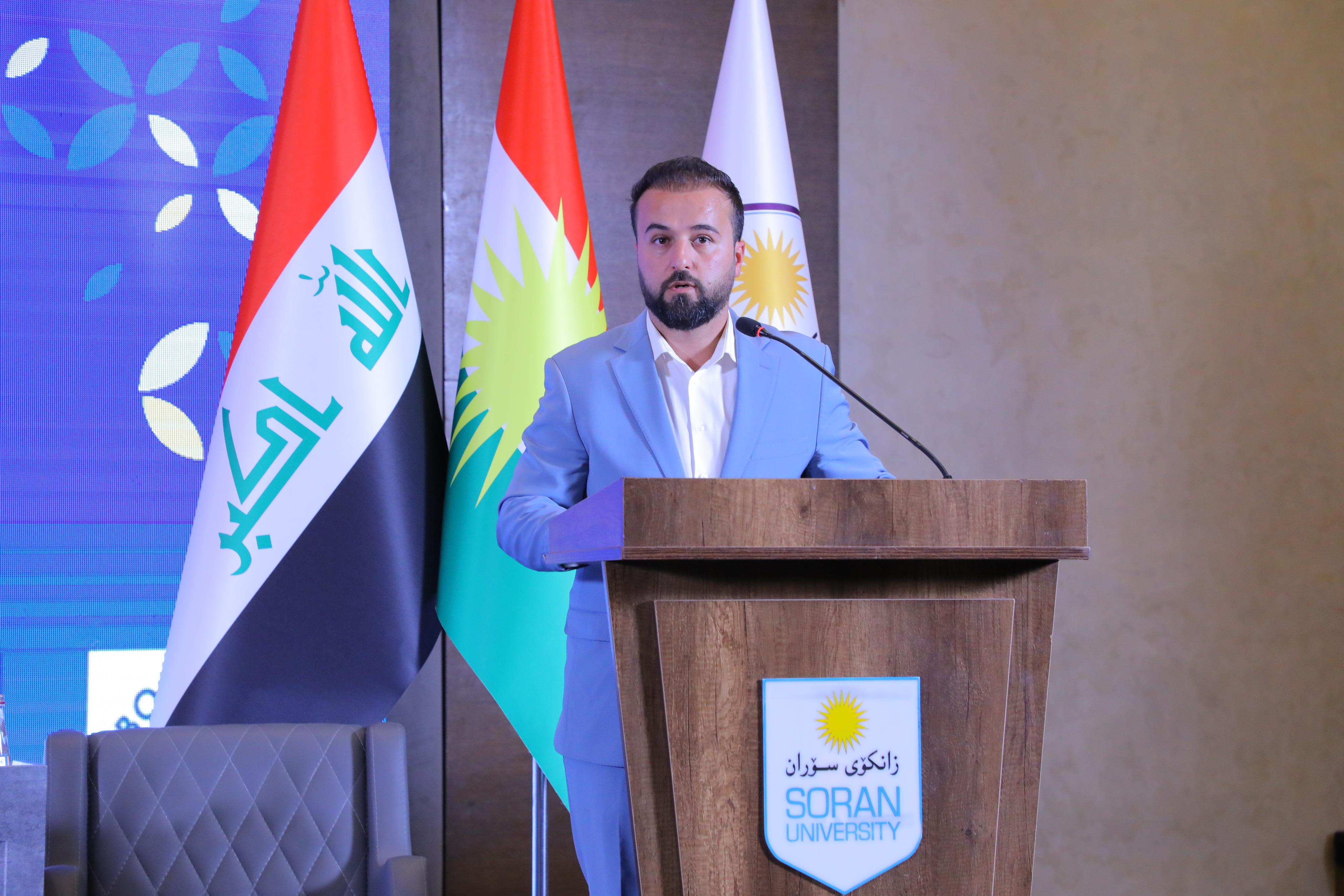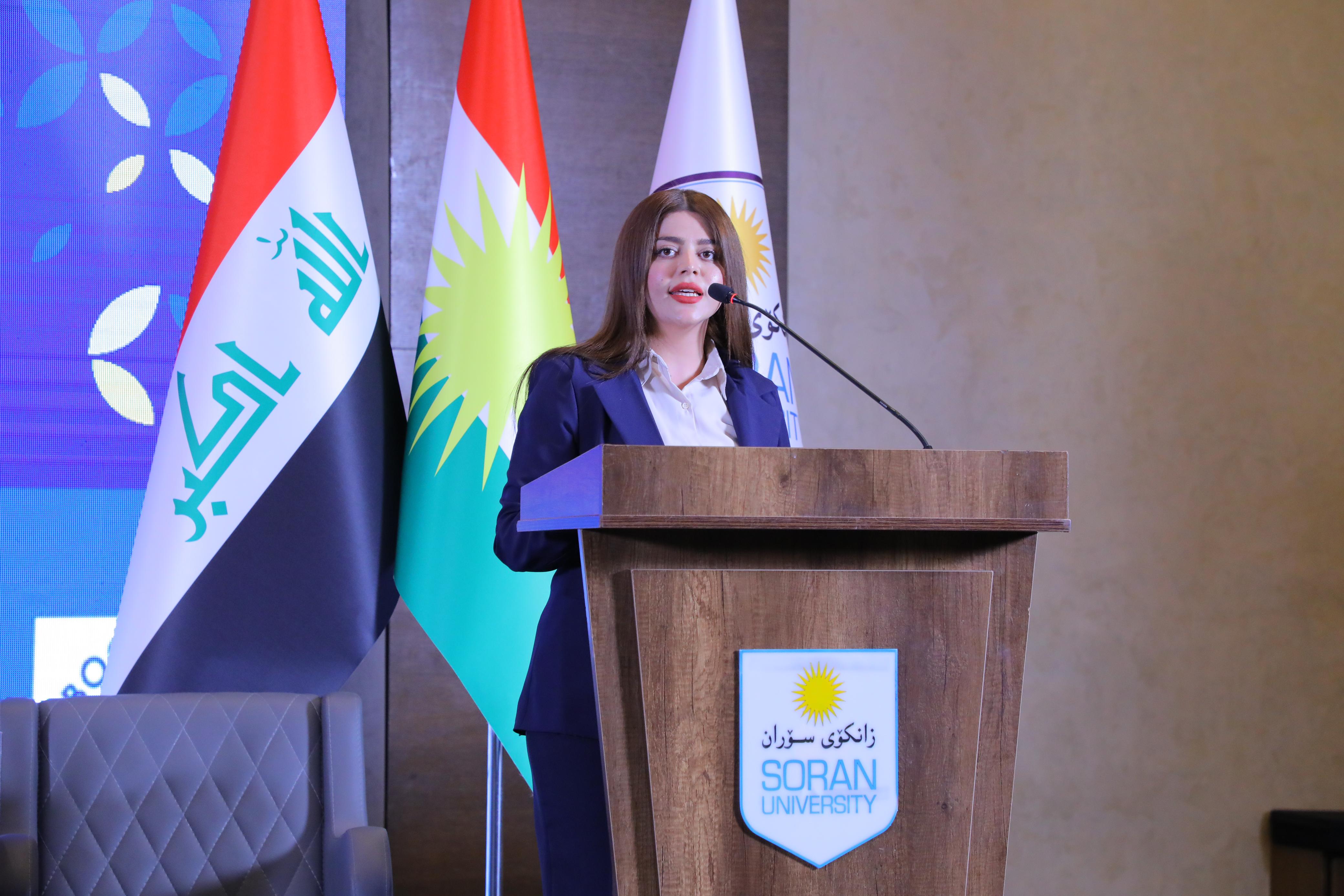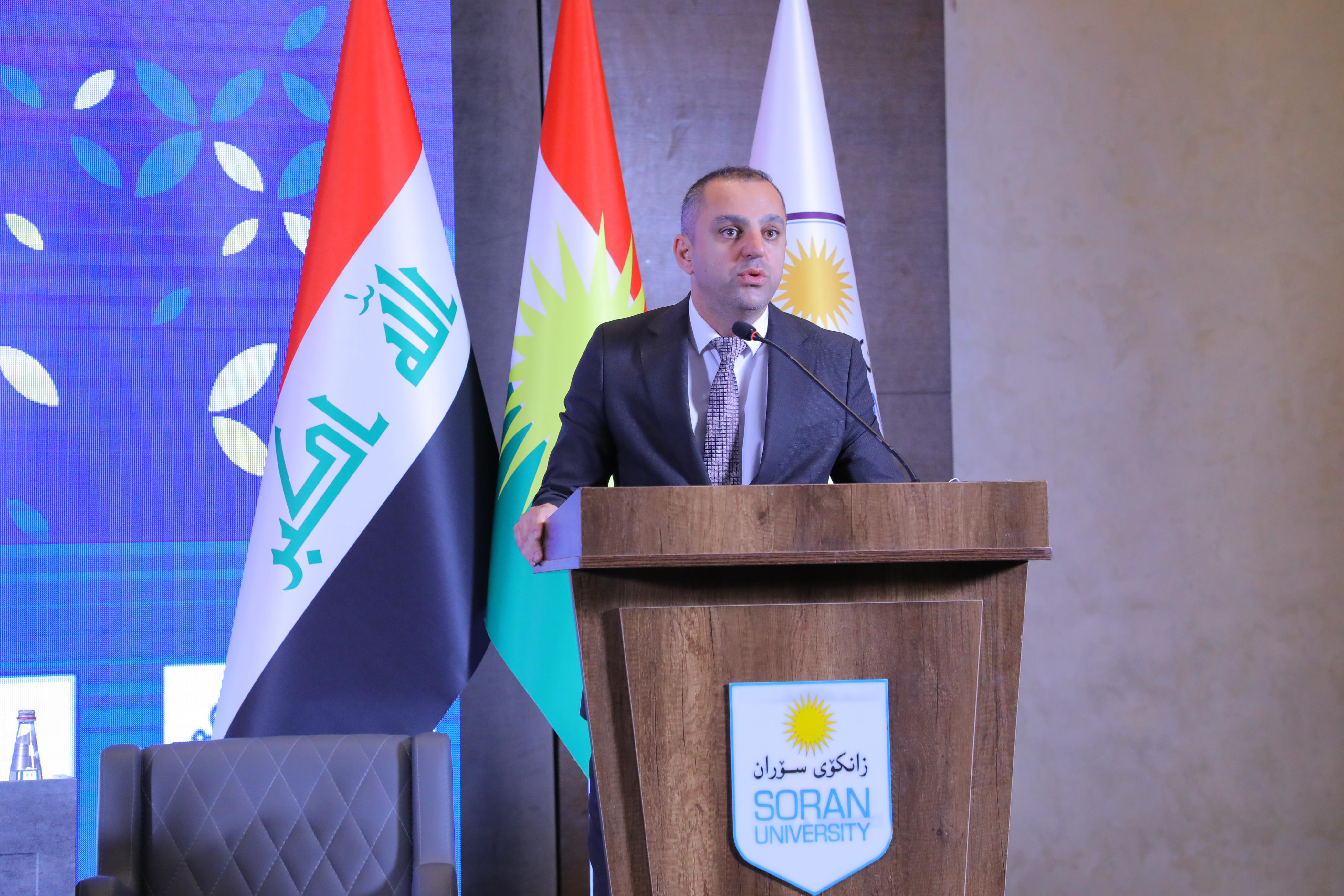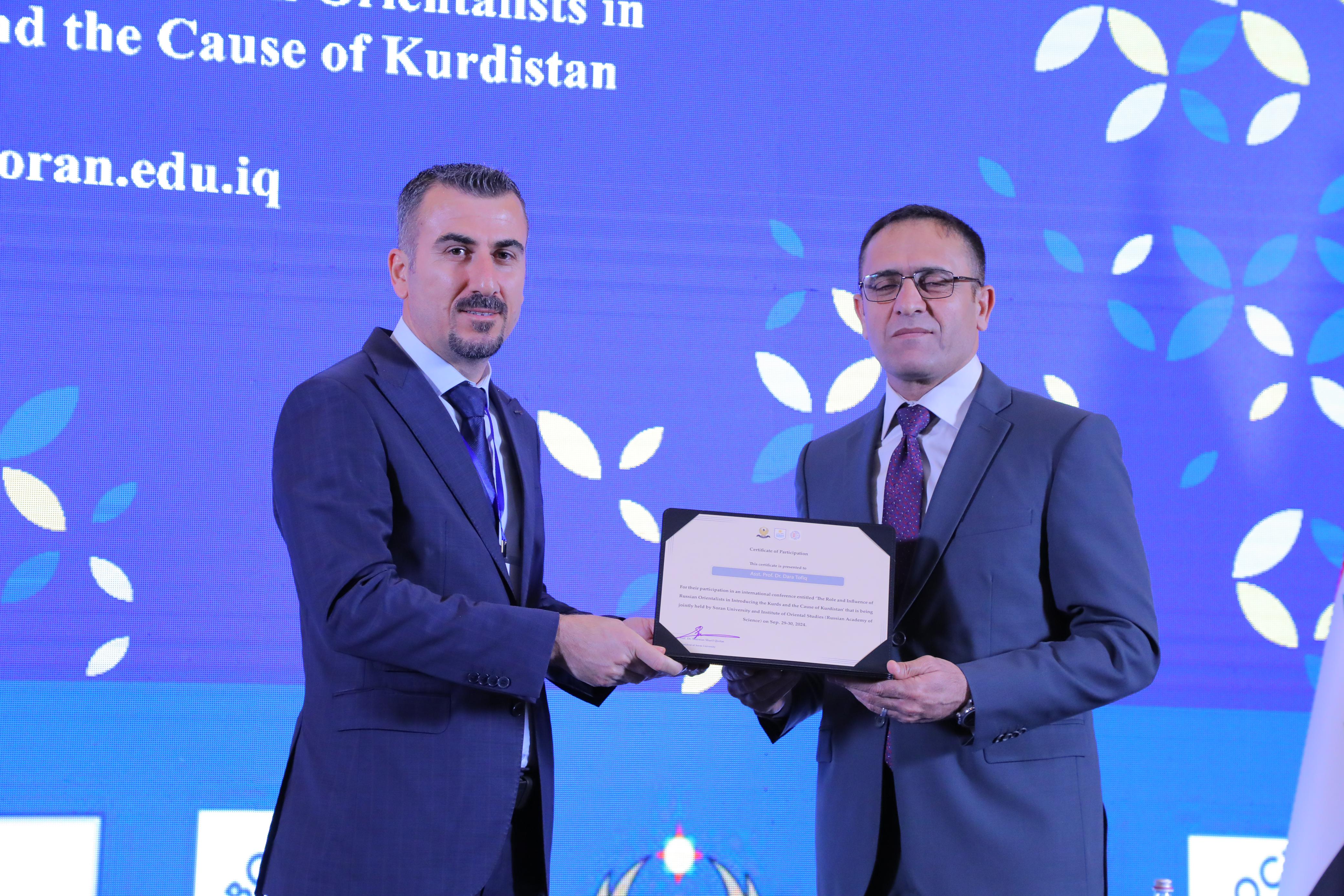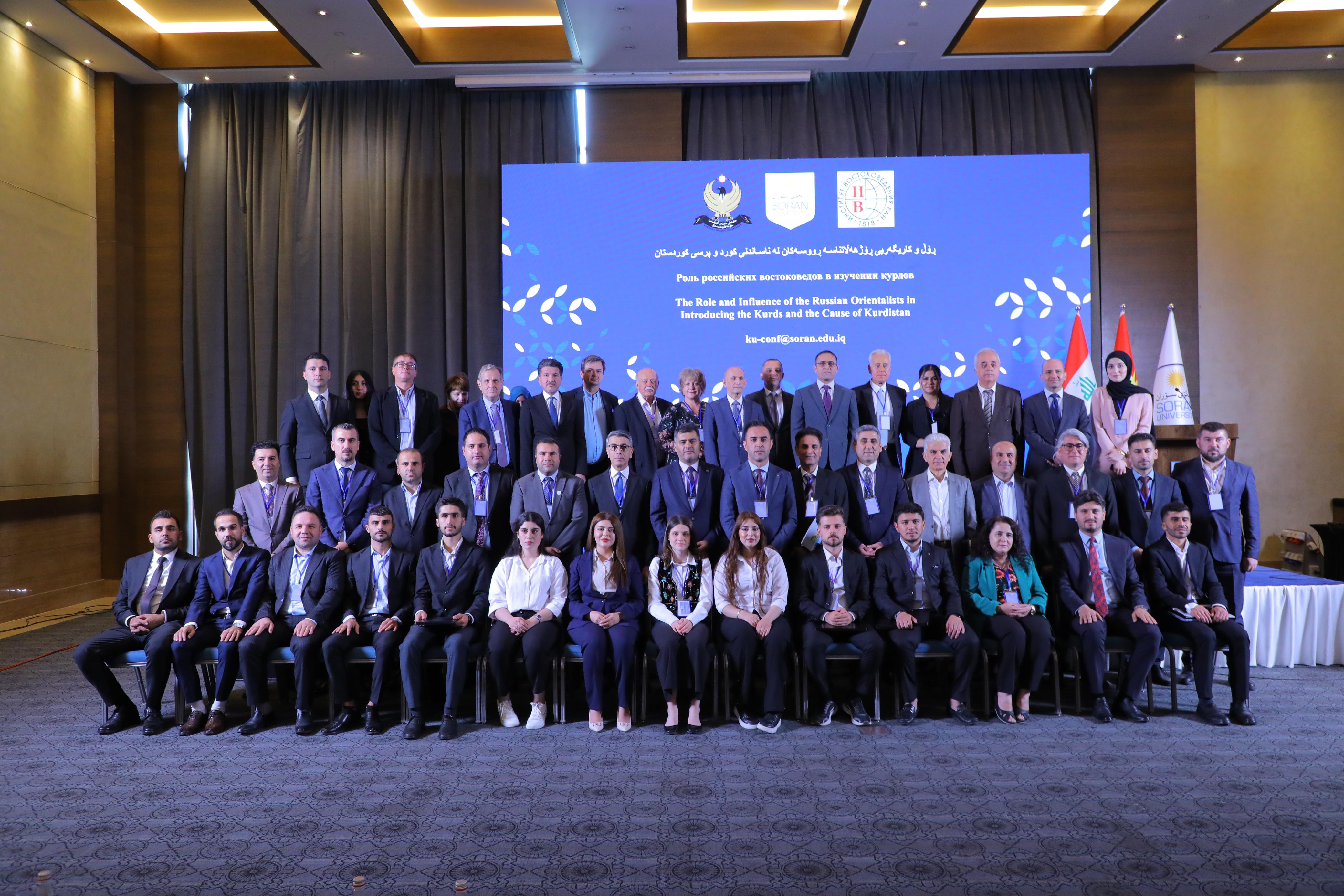
2024-09-30
"The Role and Influence of Russian Orientalists in Introducing the Kurds and the Kurdistan Cause” International Conference wraps up its work
“The Role and Influence of Russian Orientalists in Introducing the Kurds and the Kurdistan Cause” International Conference concluded its work on Monday, September 30th, 2024, sponsored by Kurdistan Media Network. The conference was jointly organized in Erbil, the capital city of the Kurdistan Region, by Soran University and the Institute of Oriental Studies of the “Russian Academy of Sciences”, in coordination with the Kurdistan Regional Government's representative in Russia.
The second day of the Conference featured five-panel discussions. The first panel was moderated by Dr. Dilsoz Jalal in which AP.Dr. Yuri Avrianov, lecturer. Arina Asilgozina, Dr. Irina Serenco, Dr. Natalia Zamaraeva particpated. Several topics were discussed. These include Yarsani's (Kakayis’) manuscripts of holy texts (Kalam) and Sultan Sahak's character, the language as a reflection of the political situation in Kurdistan, Kurds, and the Kurdish Cause in Pakistan.
The second panel was moderated by Dr. Chinor Jaafar in which Prof.Dr. Kaywan Azad Anwar, Lecturer Saman Osman Ali, AP.Dr. Kamran Aziz Abdullah, AP.Dr. Qadir Mohammad Qadir and Luqman Mahmoud Qassem participated. The panel discussed issues of Shia religion in the records of Russian orientalists, medieval Shia beliefs from the point of view of Russian orientalists, Kurdish tribes from the point of view of Russian orientalists from 1850-1950, and the ancient Kurdish history in Russian Kurdologists’ thought.
The third panel moderated by Dr.Rebaz Dlawar, saw the participation of Prof.Dr. Ismail Hassaf, AP.Dr. Shakhawan Abdullah Sabir, Faraidoon Samaan, and Payveen Nasrat Badi. The panel highlighted several topics: The Role of Russian and Soviet Kurdology in the Development of the Kurdish Cause, The Role of the Kurdish section of the Institute of Oriental Studies of the Academy of Sciences of Saint Petersburg, the Russian School of Oriental Studies in the field of research about the Kurdish Nation 1959-1985, Kurdish language and culture in the Caucasus and Central Asia and What makes Russian School of Oriental Studies differ from other schools of oriental studies of the Kurdish nation.
The fourth panel was moderated by Dr. Ibrahim Mala Zada. Dr. Sherwan Hussain Shinak, AP. Dr. Hemin Mohammad Ismail, Dr. Karzan Omar Ali, Dr. Rebin Saeed Awla, and Awat Mohammad Othman took part. The panel discussed the importance and place of the Kurdistan region from the perspective of Russian orientalists and Russian foreign policy, the problem of Iraqi Kurdistan in the strategy of the Soviet Union and the challenges faced by the United States during the wartime, and the issue of Kurdistan's independence from the viewpoint of Russian officers and orientalists and the Role and Status of the Red Kurdistan in the Soviet Union.
The Fifth and final panel of the second day of the conference was moderated by AP. Dr. Media Ibrahim. AP.Dr. Amanj Hassan Ahmed, AP.Dr. Majid Khalil Fatah, AP.Dr. Shukhan Mahmoud Hussein, AP.Dr. Dara Tawfiq Kakamin Mansour Siddiqui and lecturer Kaywan Siddiq Mohammed participated.
At the closing panel, several topics related to women were discussed:Tthe character of Kurdish women in the eyes of Russian orientalists, a socio-historical study, The role and place of Kurdish women in the eyes of Russian orientalists in the nineteenth and twentieth centuries, and Lerkh and his famous book and his ethnography of Trans Caucasus Kurds in the Caucasus newspaper articles 1846-1900.
At the end of the second day of the Conference, Its recommendations were read in Kurdish and Russian. Later, the participation certificates were distributed to participants in all the panels on the two-day conference.
The Kurdistan Regional Government's representative in Russia extended its thanks and appreciation to Soran University. In the latter section, certificates were distributed to members of the Scientific Committee, the Preparatory Committee for the Conference, and Soran University volunteers.
